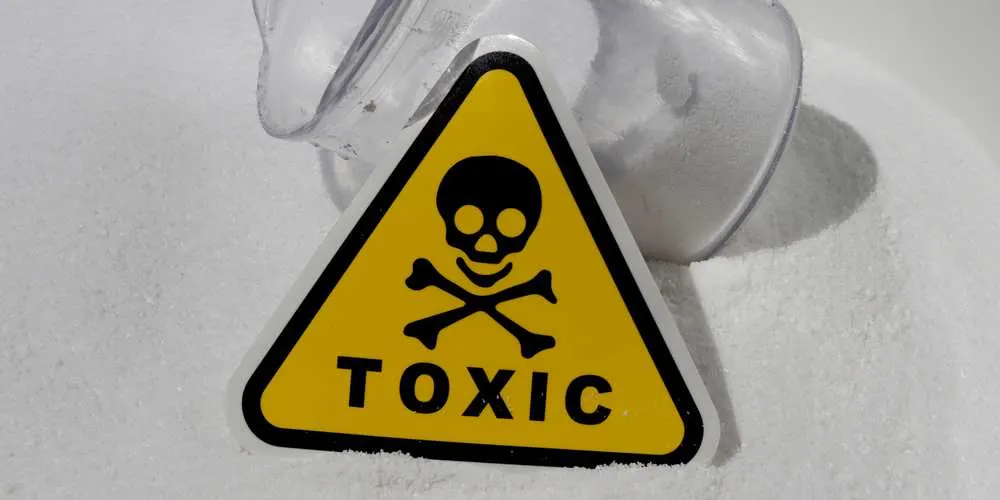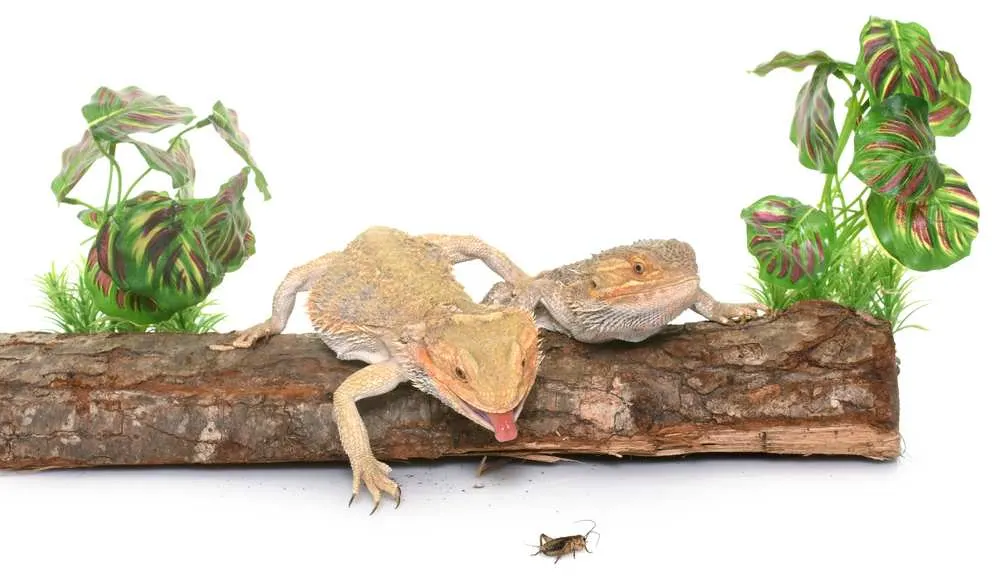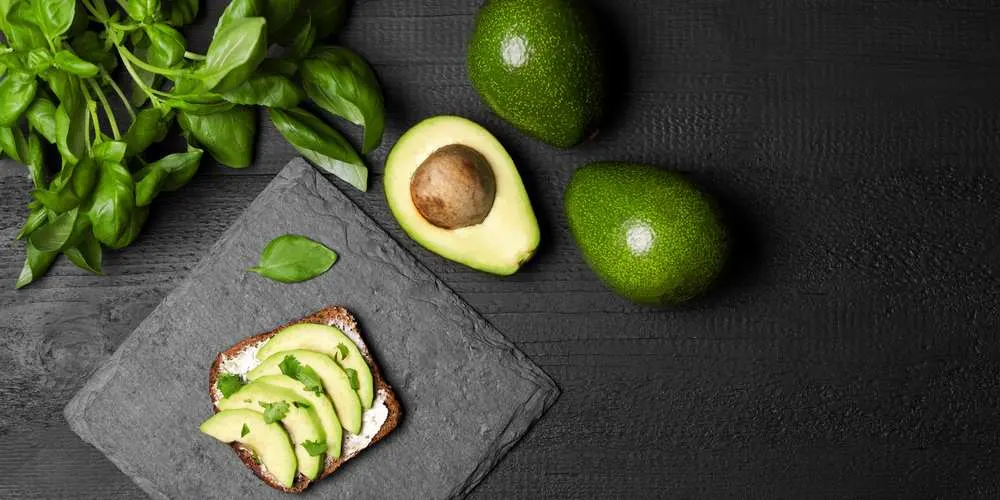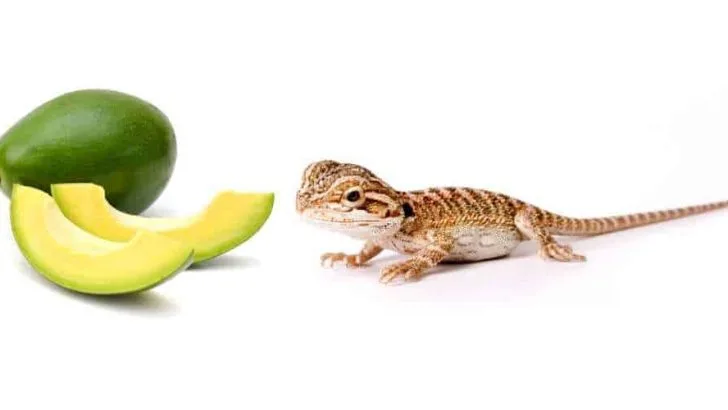As someone who considers itself a good reptile caregiver, I mostly spend my time searching for things that I shouldn’t do. If you’re similar to me, you probably asked yourself at least once:
Can bearded dragons eat avocado?
Unfortunately, they can’t. This is imperative, and there should not be any compromise when feeding avocado to your bearded dragon is at the question.
But don’t worry my reptile loving community! I have some great news.
There are a lot of things your pet can eat that don’t put it in danger and are both tasty and healthy.
Normally, I’d be bummed out if I found out my dragon can’t eat a specific type of food, but I promise you’ll learn pretty quick that avocado is not only undesirable but toxic to your bearded dragon.
So, in order to learn about some alternatives, and perhaps pick up on some useful information about your bearded dragon’s diet, I suggest you take notes!

Avocados & Why Your Bearded Dragon Should Avoid Them
Avocados can be lethal in most situations. These tasty delights that we humans enjoy so much have a very specific toxin in them that is harmful to most of the animals that are similar in size to your pet.
The toxin I’m talking about is called persin. It’s found in the seeds and skin of the avocado. That wouldn’t be a problem if it didn’t leak in the flesh of the fruit. This toxin is also found in the leaves and the bark of the avocado.
This excludes the possibility for your pet to enjoy nibbling on any of the parts of the avocado.
Persin can cause diarrhea, vomiting and respiratory problems (and even failure), and death when eaten by a bearded dragon.
When consumed in small amounts, you will probably see vomiting and diarrhea as unwanted effects, but if consumed on a larger scale the consequences could be lethal.
There are some instances where these animals survived eating avocado, but these instances are so rare that you shouldn’t rely on them.
Most bearded dragons that eat avocados will probably die, or at least have serious health problems.
Even if we exclude persin from avocado, there would be a few different problems when feeding your bearded dragon this fruit.
Two of the most common are that avocados contain too much oxalic acid and that avocados are too fatty for your pet to handle. Both of these traits bring some bad side effects with them and are not to be messed with.
To understand why oxalic acid is bad for your pet, you first need to understand that calcium is a key component in your pets’ diet. Oxalic acid binds to calcium and prevents it from being absorbed into the blood. This stops the calcium from getting to the bones of your pet.
This occurrence can cause serious and long-term damage to your bearded dragon’s skeletal structure. They can even develop the metabolic bone disease. Twitching, shaking or weak limbs are some of the most common indicators that your pet might have developed this disease.
If you see any of these indicators you should take your bearded dragon to the vet as soon as possible.
Besides oxalic acid, avocados pose another problem for your pet. Bearded dragons don’t need much fat at all, and the fat that they need is found in other foods that they eat.
Avocados are too fatty to be consumed by bearded dragons. This can cause heart failure, obesity, and digestion problems.
The one that you should be worried the most about (besides the lethality of the avocado) is digestion problems.
Bearded dragons can’t digest that level of fat, thus causing them to vomit or have extreme diarrhea which is an unpleasant experience for both you and your pet.

Bearded Dragon’s Daily Diet
As you probably already know, bearded dragons base their diet on insects and some fruits. This is due to the fact that their organism functions primarily on protein and some sugar.
Most of their meal consists of insects, and some that I recommend as a bearded dragon parent are:
- Crickets
- Earth worms
- Superworms (should be fed only to adults)
- Dubia roaches
- Locusts
All of these are perfectly healthy food choices for your bearded dragon. They love whenever you feed them any of these and’ll develop a healthy tummy eating them. This is also a primary source of protein for bearded dragons, even in the wild.
Besides insects, there are some fruits your pet can have occasionally, and my personal favorites are:
All of these (some more than others) contain sugar, and this is precisely the reason you shouldn’t feed these to your bearded dragon on a daily basis.
Sugar isn’t bad for them, it’s just not good when fed to them regularly. It can slow the metabolism down and make your pet slow and lazy.
Apples are my number one because they are healthy and low in calories, and on top of that, they don’t contain much sugar!
The only thing you should be aware of is the seeds of apples and pears. They contain cyanide and should never be fed to your bearded dragon.
If you’d like to add some veggies to your pet’s diet, you should consider some of these options:
All of these are perfectly safe options as long as you don’t make it into a regular component of your bearded dragon’s diet.
What (And How) To Feed Your Baby Bearded Dragon?
In contrast to fully grown beardies, babies need to eat three times a day. They need veggies and insects regularly in order to grow big and strong!
You can leave veggies in their cages, and they’ll munch and nibble on them throughout the day.
Insects are a bit of a different story. What you’ll need to do is to get a healthy amount of insects in your baby bearded dragons cage three times a day throughout a fifteen-minute feeding period. If they don’t eat in those fifteen minutes, you have to get rid of the remains.
Remember, when your pet reaches its full size, it should be fed once a day.

What To Do If Your Bearded Dragon Eats Avocado?
First and foremost, if you let your bearded dragon roam freely around your house, you should keep avocados and other foods that your pet isn’t supposed to get their little claws on out of its reach.
This will keep you stress-free, and you won’t have to glue your eyes on your beardie whenever you let it roam around.
If for any reason you forget to keep your avocado on a safe distance from your pet, or have some laying around and you see your pet vomiting or having extensive diarrhea, you should immediately check your avocados to see if it tried to eat a piece of it.
If it turns out your beardie really took a bite (or bites) out of an avocado, you should keep in mind that most of the bearded dragons that consume avocado die within a couple of hours after taking it.
This means you have a short window of time to react swiftly in this situation. The first thing you need to do is call a vet and explain what happened. Remember, vets will always keep a cool head, even in situations in which you might not.
They will probably tell you to bring your pet to them. Do this immediately. Vets can try and get the toxins out of your pets system in the quickest way possible.
Remember, there are some instances that bearded dragons actually survived consuming avocado and made a full recovery shortly after.
This can be achieved only with a swift reaction and a vet that knows what he’s doing.

Summation
It’s quite obvious whether bearded dragons eat avocado. All of the things I have listed strongly indicate that the answer is no. Avocados are nothing but a bad choice for your beardie. If the toxins don’t kick in, and by some miracle, your pet survives, the fattiness will cause some serious problems in your bearded dragon’s diet.
There are so many foods that your pet can eat, that I would never be worried about my beardie not trying avocado.
Remember, keep your bearded dragon healthy and full of protein for a longer and better life!


